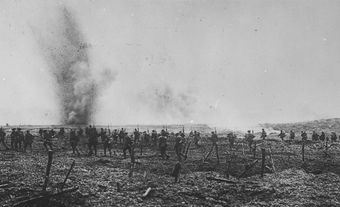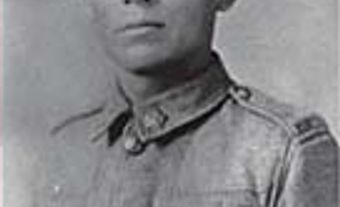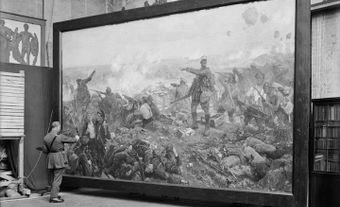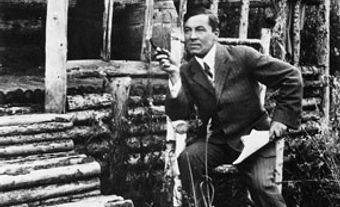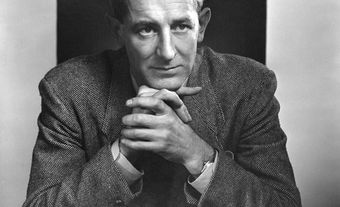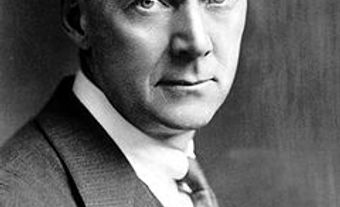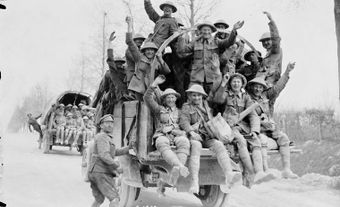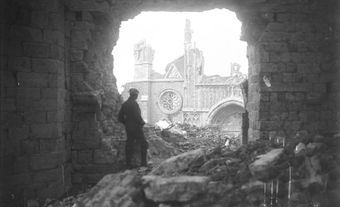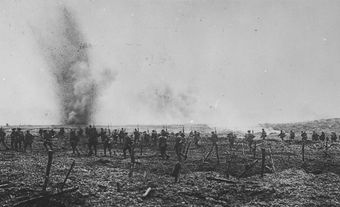Charles Yale Harrison, journalist, novelist (born 16 June 1898 in Philadelphia, Pennsylvania, USA; died 17 March 1954 in New York, New York, USA). Harrison was a Canadian-American writer and journalist. He is best known for his anti-war novel Generals Die in Bed.

Born in Philadelphia, Charles Yale Harrison spent his childhood and adolescent years in Montreal. An aspiring journalist, Harrison took a job at age 16 with the Montreal Star newspaper. His early venture into journalism was short-lived, as he enlisted in the Canadian Expeditionary Force in 1917 and was sent to Europe. Initially part of a reserve battalion, Harrison was transferred to the Royal Montreal Regiment and subsequently sent to the Western Front. On 8 August 1918, during the first day of the Battle of Amiens, he was wounded and spent the remainder of the war recovering from his injuries.
After briefly managing a movie theatre in Montreal, Harrison moved to New York where he worked as a novelist, a journalist and a public relations consultant. In the 1930s, he was involved in cultural organizations affiliated with the Communist Party; this included contributions to the magazine New Masses. Married three times, Harrison remained in New York until his death in 1954.
Generals Die in Bed
While he did work as a journalist and public relations professional, Charles Yale Harrison is best known for his works of fiction, particularly his anti-war novel Generals Die in Bed. The novel follows an unnamed soldier, drawn from Harrison's own experiences of the First World War. The novel begins by focusing on the bonds forged during wartime and the youthful idealism that initially colours the experience. Harrison promptly shatters this illusion as the protagonist, his comrades and the readers are transported to the front lines of the war. Brutal at times, Generals Die in Bed erases the glamour of war, leaving the reader with Harrison's perspective on its futility.
Just as Harrison straddled the line between American and Canadian identity, so too does his novel. Literary circles from both countries have claimed Generals Die in Bed as their own. A compelling argument, however, is made by Canadians who point to the facts that the novel's central characters share their nationality, and that Harrison's own experiences as a member of the Canadian military inspired the content.
Originally released serially in 1928, Harrison's magnum opus was published as a novel in 1930 following the enormous success of similarly themed works such as Hemingway's A Farewell to Arms (1929) and Erich Maria Remarque's All Quiet on the Western Front (1929). It has been speculated that Generals Die in Bed influenced Remarque's classic, as portions of Harrison's book had been published in Germany prior to the publication of All Quiet on the Western Front. The most notable similarities, according to Robert F. Nielsen, are "the scenes in which the central characters have horrendous experiences of killing enemy soldiers at close range, and the discussions amongst the soldiers about why they are fighting the war."
Other Works
Charles Yale Harrison published several novels after Generals Die in Bed, including A Child Is Born (1931), Meet Me on the Barricades (1938) — a satirical novel about the Spanish Civil War — and Nobody's Fool (1948). None, however, achieved the same level of success as his great anti-war novel. Harrison also published non-fiction, including a series of pamphlets in 1937 on American low-rent housing and what some consider to be the first self-help book, Thank God for My Heart Attack (1949). This autobiographical piece would be Harrison's last publication, as he died from heart disease five years later.
Legacy
Charles Yale Harrison addressed some of the major social and political issues of his time. He viscerally captured and relayed to his readers the brutalities of front-line warfare in Generals Die in Bed and helped to bring the issue of affordable housing forward with his pamphlets. It is for the former, his most famous novel, that Harrison is remembered. His text, much like those of Hemingway and Remarque, is considered to be one of the seminal anti-war novels of the 20th century.

 Share on Facebook
Share on Facebook Share on X
Share on X Share by Email
Share by Email Share on Google Classroom
Share on Google Classroom
